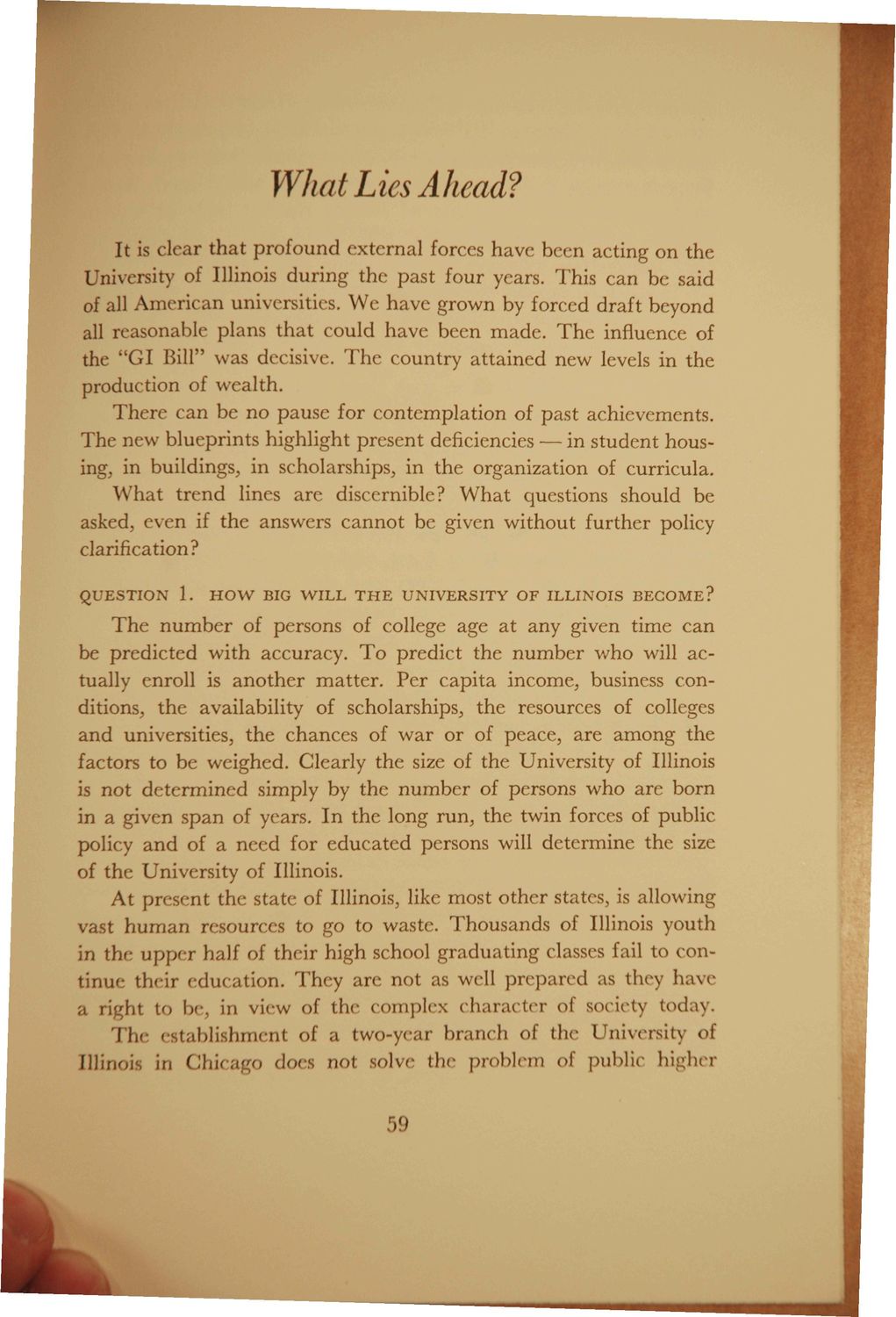| |
| |
Caption: Book - Four-Year Report of UI President (1950)
This is a reduced-resolution page image for fast online browsing.

EXTRACTED TEXT FROM PAGE:
What Lies Ahead? It is clear that profound external forces have been acting on the University of Illinois during the past four years. This can be said of all American universities. We have grown by forced draft beyond all reasonable plans that could have been made. The influence of the "GI Bill" was decisive. The country attained new levels in the production of wealth. There can be no pause for contemplation of past achievements. The new blueprints highlight present deficiencies — in student housing, in buildings, in scholarships, in the organization of curricula. What trend lines are discernible? What questions should be asked, even if the answers cannot be given without further policy clarification? QUESTION 1. H O W BIG W I L L T H E UNIVERSITY OF ILLINOIS BECOME? The number of persons of college age at any given time can be predicted with accuracy. T o predict the number who will actually enroll is another matter. Per capita income, business conditions, the availability of scholarships, the resources of colleges and universities, the chances of war or of peace, are among the factors to be weighed. Clearly the size of the University of Illinois is not determined simply by the number of persons who are born in a given span of years. In the long run, the twin forces of public policy and of a n< i d for educated persons will determine the size of the University of Illinois. At present the state of Illinois, like most other states, is allowing vast human resources to go to waste. Thousands of Illinois youth in the, upper half of their high school graduating classes fail to continue their education. They are not as well prepared as they have a right to be, in view of the complex character of society today. Tl establishment of a two-year branch of the University of Illinois in Chicago docs not solve the problem of public higher 59
| |